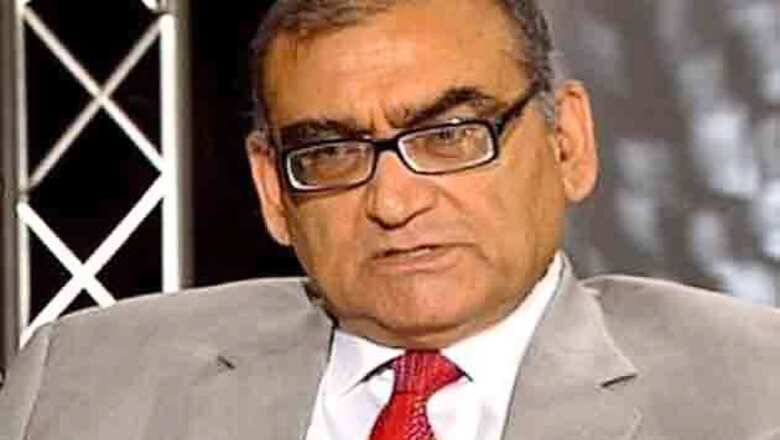
views
New Delhi: Justice Markandey Katju, retired judge of the Supreme Court of India is at it once again. After making serious allegations about a judge of the Madras High Court, a month ago, he has once again made serious allegations about the corruption in judiciary. An anguished Chief Justice of India (CJI) Justice RM Lodha has expressed serious reservations over the comments.
Some argue that justice Katju's remarks may help the government to scrap the current Collegium system, where the judges appoint other judges and the Centre may introduce the Judicial Appointments Commission Bill to replace the Collegium system.
The Judges of the Supreme Court of India are maintaining that the collegium system is the best system to keep the politicians away from interfering in the appointments of judges. However the government argues that the greater participation of 'outsiders' will actually make the appointment of judges a transparent affair.
The Standing Committee report to Rajya Sabha in December 2013 noted that, "Because of its inherent deficiencies in the collegium, as many as approximately 275 posts of judges in various High Courts are lying vacant, which has direct bearing upon justice delivery system and thereby affecting the 13 institutional credibility of judiciary.
Other suggestions to the JAC urge to provide it constitutional validation, thus making it a permanent body and not an ad hoc set up. It is also recommended that its decision be binding on the President and in case the President rejects any name, it should be open to judicial review.
Main Features of Judicial Appointments Bill
1. It provides for the establishment of a six-member Judicial Appointments Commission (JAC) to make recommendations to the President on appointment and transfer of judges to the higher judiciary.
2. Encouraging collaborations between the judiciary and executive, the members constituting JAC will comprise of the Chief Justice of India, two other senior most judges of the Supreme Court, the Union Minister for Law and Justice, and two eminent persons to be nominated by the Prime Minister, the CJI and the Leader of Opposition of the Lok Sabha.
Law Commission of India Chairman and former Delhi High Court Chief Justice AP Shah has recommended the strength of the body to be raised to seven.
3. Basic function of the JAC would include making recommendations for appointments of the CJI, SC judges, Chief Justice and other High Court judges, and even the transfer of HC judges.
4. It would empower the Parliament to pass a law providing for the composition, functions and procedures of the JAC.
5. The entire process under the JAC will be aimed at ensuring transparency. It has been suggested that the entire record of the process, starting from the nominations received up to the final recommendation made to the President, must be publicly disclosed. "They should hold a meeting and it should be televised so that all people in India can see it and there is total transparency. They should call the prospective candidate and ask him questions about his earlier functioning as a High Court judge and also his personal life, as is done in the United States," recommended Katju.
6. Decision by the JAC will taken by a consensus. "In the case that the consensus is elusive, a simple majority may help decide, with all dissenting notes accompanied by reasons being recorded in writing," suggests Shah.
7. The JAC will work in a stipulated time frame. It provides time periods within which vacancies will be filled up. Even the government has time limit of upto 2 months to intimate the Commission of the vacancy.














Comments
0 comment